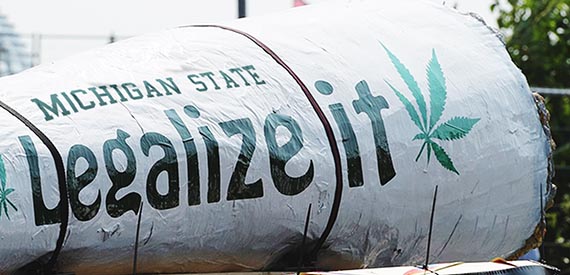This January, Illinois became the first state to include comprehensive social justice measures in its adult-use cannabis legalization law, and almost a year later, the state is still working to expand these programs.
Last week, the state launched New Leaf Illinois, a program designed to help former cannabis offenders get their records cleared. The program was created by the Illinois Equal Justice Foundation (IEJF), a state program that distributes government funding to nonprofit legal aid programs. The IEJF already handles appropriations for a legal aid grant program and a legal aid service for veterans, but is now launching a new arm focused on cannabis expungements.
Under the state’s adult-use law, any Illinois resident that had previously been convicted of a minor pot-related offense is eligible to have those convictions cleared. Many of these offenses are eligible for automatic expungement, and Governor J.B. Pritzker already pardoned thousands of former cannabis offenders at the start of this year.
The IEJF estimates that there are still around 700,000 Illinoisans who are eligible to have their records cleared, though. Some of these cases will be automatically handled by the state’s automatic expungement process, but in other cases, a former offender must personally petition the court to have their records cleared. The New Leaf Initiative was created to help these individuals complete this difficult and time-consuming process.
Due to the total volume of convictions that need to be cleared, state officials have set up a five-year deadline to complete the automatic expungement process, starting with older offenses and working towards more recent ones. But for individuals whose former records are blocking them from getting housing, jobs, or loans, five years is a long time to wait. New Leaf is offering to pair applicants with legal professionals who can help them expunge their records even sooner.
“These individuals may have a criminal record that could make it harder for them to actually get a job, advance their education or even be able to rent an apartment,” said Gray Matteo-Harris, IEJF board member and partner at the Fox Rothschild law firm, at a recent press conference, Capitol News Illinois reports.
“If you look at the data, Black and brown people and economically disadvantaged communities were disproportionately penalized by past criminalization,” Matteo-Harris continued. “The expungement process is one step toward repairing that harm for people who were previously arrested or prosecuted for something that is now legal for all of us.”
The program is being funded by tax revenue generated by legal weed sales, making good on the state’s promise to reinvest its cannabis revenue in communities most heavily impacted by decades of prohibition. Legal weed sales started off strong in January, and have been going strong ever since, providing ample tax revenue for these services. In addition to the New Leaf Initiative, the state has also redirected $31.5 million in pot taxes to help fund youth development, violence prevention, legal aid, and economic development programs.











